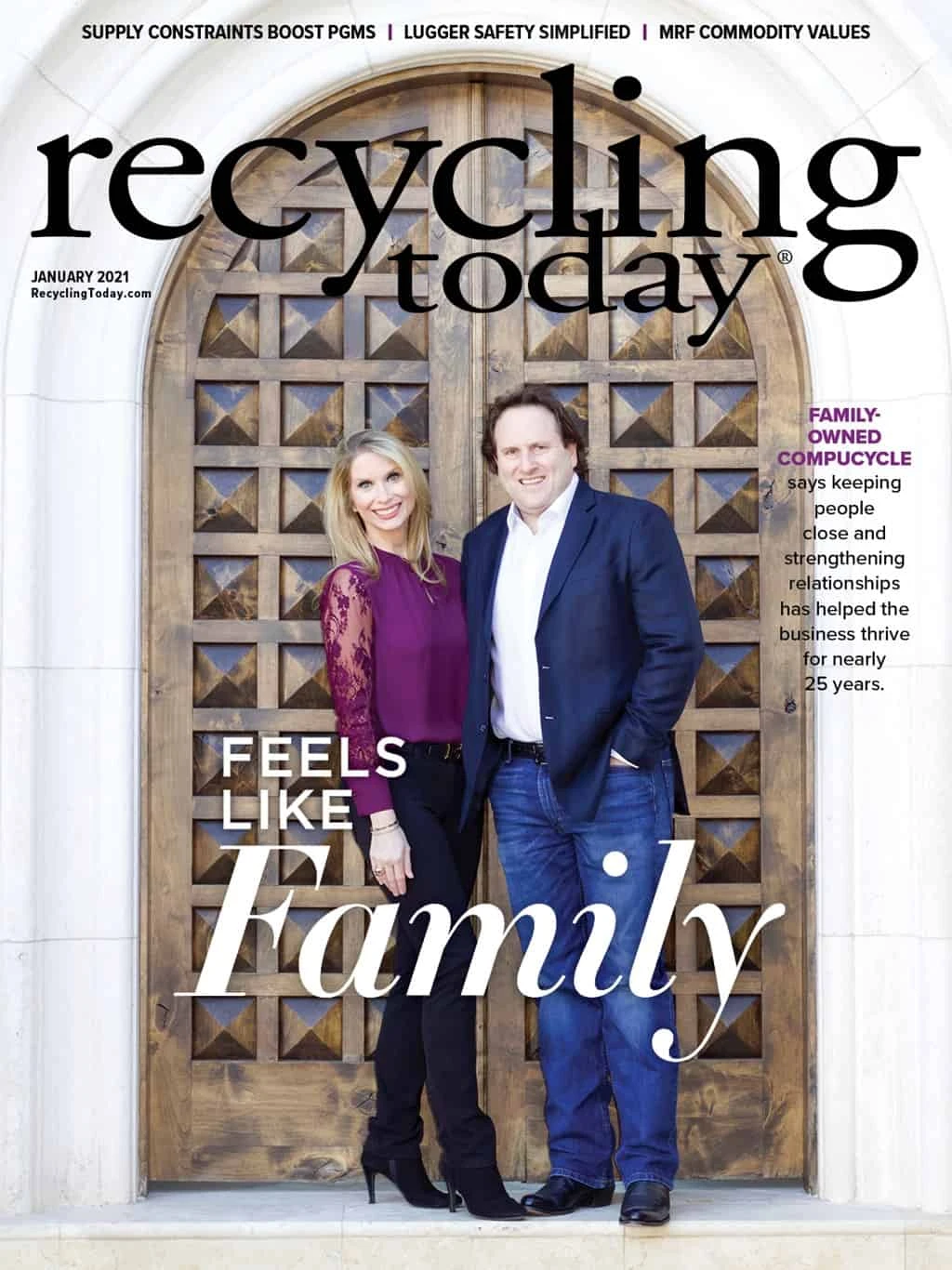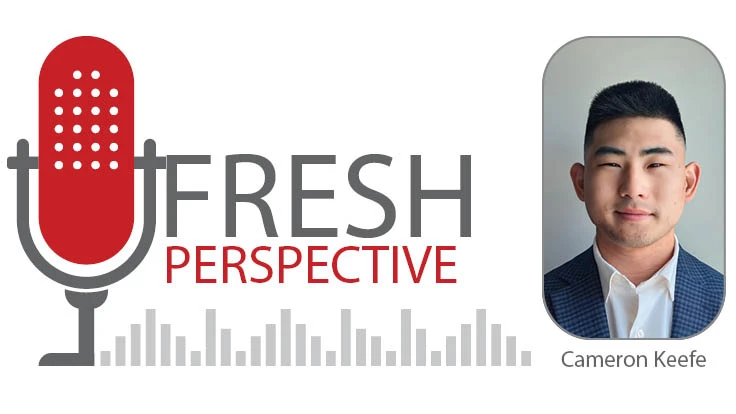
The Recycling Partnership awards PP recycling grants
The Recycling Partnership, Falls Church, Virginia, has announced that it has awarded nearly $2 million in grants designed to advance polypropylene (PP) recycling in the U.S. through its Polypropylene Recycling Coalition. The coalition is a cross-industry collaboration that launched in 2020 with founding committee members Keurig Dr Pepper, Braskem, the Walmart Foundation and other members of the PP value chain.
In its initial round of funding, the coalition is providing four grants to material recovery facilities (MRFs) across the United States to improve and increase sorting of PP and support targeted consumer education efforts. PP is used in an array of food and nonfood packaging. According to the partnership, the coalition’s investments will widen total nationwide acceptance of PP in curbside recycling programs by approximately 1.7 percent, which equates to an additional 4 million people. This will result in the recovery of a greater supply of PP that could be made into new products, such as consumer packaging and automotive parts.
Grants are awarded to candidates not currently recycling PP. With these investments, PP will now be accepted curbside in more communities and sent to established end markets. Community members in these areas will be educated as to what is and isn’t accepted in curbside recycling.
The four grantees include:
- Cougles Recycling, headquartered in Hamburg, Pennsylvania;
- Mazza Recycling, based in Tinton Falls, New Jersey;
- Rumpke Waste & Recycling, headquartered in Cincinnati; and
- Winters Bros., headquartered in West Babylon, New York.
“Through the Polypropylene Recycling Coalition, we are rapidly driving meaningful, measurable change by awarding grants to four material recovery facilities that will improve and increase the capture of polypropylene. We encourage all companies that use polypropylene to join us and be part of the solution,” Keefe Harrison, CEO of The Recycling Partnership, says. “In just a few months, we’ve gathered companies across the value chain, launched the coalition and awarded grants. This collaborative work will support jobs, preserve natural resources and help support the transition to a circular economy in the United States.”
“As Ohio’s recycling leader, our family company processes more than 1 billion pounds of recyclables annually, and our customers have a desire to recycle even more,” Jeff Snyder, recycling senior manager for Rumpke, says. “The Polypropylene Recycling Coalition grant will aid us in our efforts to responsibly grow recycling within our service footprint while providing end-users with a clean stream of material for their products.”
The coalition continues to accept grant applications, with the next round of grant proposals due March 31.
SABIC increases recycled content in its engineering thermoplastics
SABIC (Saudi Basic Industries Corp.), Riyadh, Saudi Arabia, has announced that its engineering thermoplastics business is expanding its portfolio of Cycoloy and Lexan resins containing high levels of postconsumer resin (PCR).
Typical applications for the portfolio include consumer electronics and accessories, such as chargers and adapters, printers, copiers and laptop housing.
The company’s new PCR material is blended with virgin material to create compounds with PCR levels of up to 30 percent initially. According to an internal SABIC life cycle assessment study, which had not undergone ISO third-party critical review at the time of the announcement, these compounds offer reductions in carbon footprint and energy consumption of up to 25 percent and 30 percent, respectively, compared with virgin material.
SABIC says it hopes to be able to offer materials with PCR content of up to 60 percent in 2021. The compounds and their properties will be tailored according to different industry requirements.
“The initiative to produce a broader portfolio of engineering thermoplastics with PCR content complements our existing efforts in making base resins from certified renewable feedstock,” says Sergi Monros, vice president of performance polymers and industry solutions for petrochemicals at SABIC. “Together, our circular solutions from our Trucircle portfolio and services can help to improve plastic recyclability, lower emissions and drive towards closing the loop on used plastic.”
The extended range of materials will contain PCR polycarbonate coming from applications such as 5-gallon water bottles and optical media. “Such products are made with clear polycarbonate, and they are easy to obtain, sort and clean,” Monros says. “We are also investigating use of PCR polycarbonate from end-of-life automotive applications, such as headlights and dashboards.”
Sponsored Content
Still relying on manual sorters?
Let AI do the heavy lifting. Waste Robotics delivers reliable, high-performance robots tailored for complex waste streams. They require minimal maintenance, are easy to operate, and are designed to boost your recovery rates. Smarter sorting starts with the right partner. Waste Expo Booth #1969 & REMA #2843
Click here to see our robots in action!Within the expanded portfolio, SABIC says it also will develop materials to meet the various needs of different players in the market, with grades featuring different levels of flame retardance, targeting various business equipment applications and electrical applications, such as internal components. The company says it also will offer grades with PCR content for applications that require good clarity. The new portfolio will encompass unfilled grades and grades containing filler.
SABIC says it has set very strict requirements for the quality of incoming PCR, which it will acquire by partnering with approved suppliers that will source feedstock from around the world. The company adds that it will obtain the PCR in a ready-to-process granular form to be compliant with China’s policies on plastic waste imports.
Get curated news on YOUR industry.
Enter your email to receive our newsletters.

Explore the January 2021 Issue
Check out more from this issue and find your next story to read.
Latest from Recycling Today
- MTM Critical Metals secures supply agreement with Dynamic Lifecycle Innovations
- McClung-Logan Equipment Company joins Tana’s authorized dealer network
- Grede to close Alabama foundry
- Plastics Recycling Conference 2025: Working toward their targets
- SWACO rolls out new commercial recycling and food waste programming
- Updated: Matalco to close Canton, Ohio, plant
- Metso launches electric Anode Weighing and Casting Machine
- Circular by Shapiro releases '5 for Five' sustainability series








